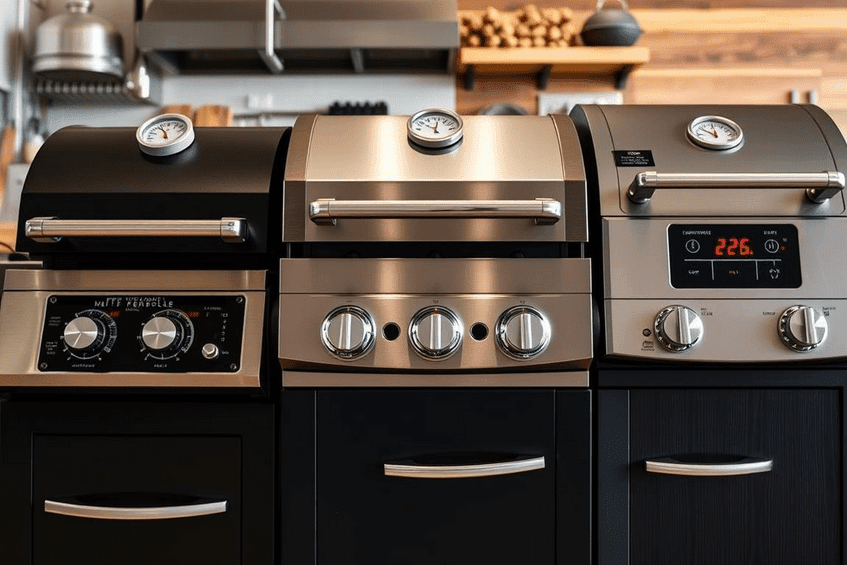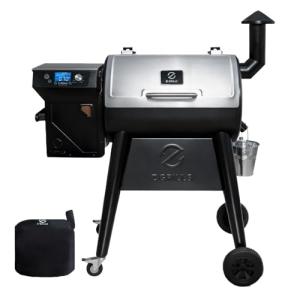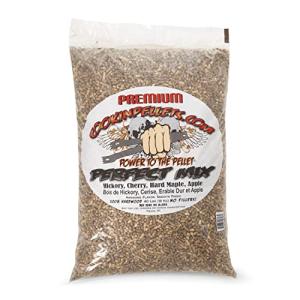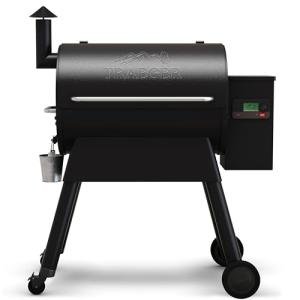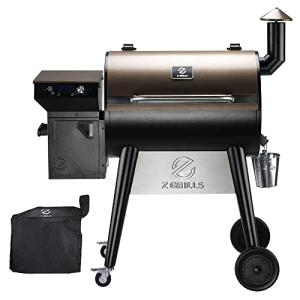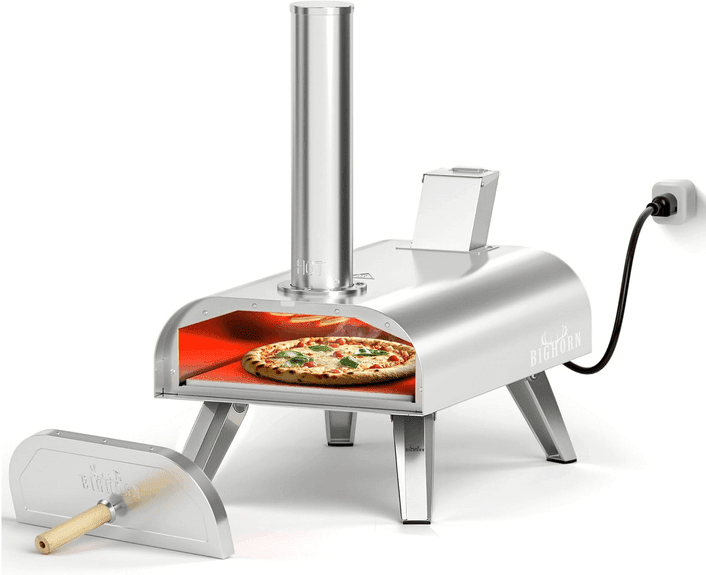Why Your Grill Choice Matters:
As summer gets closer, many of us can't wait to grill outside. Grilling is a big part of American life. According to the Hearth, Patio and Barbecue Association, 80% of homeowners own a grill or smoker.

Choosing the right grill can be hard with so many options. The debate between charcoal, gas, and pellet grills is ongoing. Each has its own good points and bad points.
In this article, we'll look into outdoor cooking options. We'll compare charcoal, gas, and pellet grills to help you make an informed decision.
Key Takeaways
- Understanding the different types of grills available
- Comparing the benefits of charcoal, gas, and pellet grills
- Identifying the best grill choice for your outdoor cooking needs
- Exploring the unique features of each grill type
- Making an informed decision based on your grilling preferences
The Fundamentals of Outdoor Grilling
Outdoor grilling fans know the right grill is key to great food. Learning the basics is essential for choosing the best grill.
Why Your Grill Choice Matters
Choosing between charcoal, gas, and pellet grills depends on several things. These include taste, ease, and cost. Your grill choice influences not only the taste of your food but also the overall grilling experience. For example, charcoal grills give a smoky flavor, while gas grills are easy to use and heat up fast.
Key Factors to Consider When Choosing a Grill
When picking a grill, several important factors come into play. These include:
- Flavor profile: The type of fuel greatly affects the taste of your food.
- Convenience: Consider how much time and effort you're willing to spend on grilling.
- Cost: Grills vary in price, and your budget is a big factor.
To understand the differences between grill types, let's look at a comparison table:
| Grill Type | Flavor Profile | Convenience Level | Average Cost |
|---|---|---|---|
| Charcoal | Smoky, traditional | Low | $100-$500 |
| Gas | Clean, modern | High | $200-$1,000 |
| Pellet | Smoky, versatile | Medium | $300-$1,500 |
By considering these factors and understanding the unique traits of each grill type, you can select the one that best suits your needs.
Charcoal Grills: The Classic Choice
Charcoal grills are a timeless choice for outdoor cooking. They can reach high temperatures and add a unique flavor to food. As a grill enthusiast, I love the traditional appeal and culinary benefits they offer.
How Charcoal Grills Work
Charcoal grills work by burning charcoal to produce heat. First, you light the charcoal and let it ash over. Then, you adjust the vents to control the temperature. This results in a rich, smoky flavor that's unique to charcoal-grilled foods.
Types of Charcoal Grills
There are several types of charcoal grills, including kettle grills, ceramic grills, and offset smokers. Each type has its own benefits, such as versatility, heat retention, or smoking capabilities.
Popular Charcoal Grill Brands and Models
Well-known charcoal grill brands include Weber, Kamado Joe, and Big Green Egg. These brands offer a variety of models. You can find everything from portable grills to large, permanent installations.
Price Range and Investment
The price of charcoal grills varies a lot. It depends on the type, size, and brand. Basic kettle grills start at around $50, while high-end ceramic grills can cost over $2,000. When selecting a charcoal grill, consider your budget and grilling requirements.
Gas Grills: Convenience and Control
Gas grills are great for those who want easy grilling. They make cooking consistent and are good for all grillers. This makes them perfect for both new and seasoned grilles.
How Gas Grills Function
Gas grills use natural gas or propane to heat up. This makes them quick to warm up and easy to control. The burners are designed to distribute heat evenly.
Natural Gas vs. Propane Options
Choosing between natural gas and propane grills is a crucial decision. Natural gas grills connect to your home's gas line, providing a steady fuel supply. Propane grills use tanks that need to be refilled or replaced. Natural gas is more convenient, but propane offers more flexibility in where you can place your grill.
Leading Gas Grill Manufacturers
Top brands in gas grills include Weber, Char-Broil, and Napoleon. They offer a range of models, from basic to advanced.
Price Range and Long-term Costs
Gas grills come in different prices, from a few hundred to thousands of dollars. Over time, costs include fuel and maintenance. Here's a comparison:
| Fuel Type | Initial Cost | Long-term Costs |
|---|---|---|
| Natural Gas | $800-$2,000 | Lower |
| Propane | $500-$1,500 | Higher |
The table indicates that natural gas grills may be more expensive upfront. But they can save money in the long run compared to propane grills.
Pellet Grills: The Tech-Forward Option
Pellet grills represent a significant advancement in outdoor cooking. They burn compressed wood pellets, giving food a smoky taste. Additionally, they feature digital controls for easy temperature adjustment.
Operation and Features
Pellet grills work by burning wood pellets in a firepot. This creates heat and smoke. The digital controls allow you to set the temperature precisely, ensuring your food cooks perfectly every time. Key features include:
- Advanced temperature control for precise cooking
- Smoking capabilities with various wood pellet flavors
- Easy cleanup compared to traditional charcoal grills
Pellet Types and Flavors
The type of pellets used changes the taste of your food. You can choose from hickory, mesquite, apple, and cherry pellets. Trying different types can help you find your favorite flavor.
Top Brands and Pricing
Top brands like Traeger, Green Mountain Grills, and Camp Chef make great pellet grills. Prices vary a lot, depending on the features, size, and brand. They can cost from a few hundred to several thousand dollars.
Ongoing Expenses
Buying a pellet grill isn't just a one-time cost. You'll also spend money on pellets and upkeep. But many people think the convenience and quality of cooking are worth it.
Flavor Profile Comparison
The flavor of your grilled food changes based on the grill type. Each grilling method brings its own unique taste to your food. Choosing the right grill is key for any grilling fan.
The Distinctive Charcoal Flavor
Charcoal grills impart a traditional, smoky flavor to food. This flavor originates from the burning of charcoal, which adds compounds to the food. BBQ expert Steven Raichlen says, "Charcoal grilling is an art that requires patience, but the reward is a depth of flavor that's hard to match with other grilling methods."
"The real magic happens when you combine the right type of charcoal with the right grilling technique."
Gas Grill Flavor Characteristics
Gas grills offer a cleaner, more neutral taste compared to charcoal grills. They provide a controlled grilling space, perfect for those who prefer less smokiness. Yet, some say gas grills can't match the deep flavors of charcoal or pellet grills.
Pellet Grill Smoke Infusion
Pellet grills are popular for their ability to add a rich, smoky taste without direct charcoal handling. They burn compressed wood pellets, giving a consistent smoke flavor. The wood type used can change the flavor, offering various smoky tastes.
Adding Smoke Flavor to Different Grill Types
If you want smoky flavor without charcoal or pellet grills, there are options. Wood chips or chunks can be used in gas grills for smokiness. Pellet grill smokers can also boost the flavor of foods grilled on other grills.
| Grill Type | Flavor Profile | Smoke Flavor |
|---|---|---|
| Charcoal | Traditional, smoky | High |
| Gas | Clean, neutral | Low |
| Pellet | Rich, smoky | High |
Temperature Control and Cooking Precision

Grilling well means controlling the temperature. Different grills offer different levels of precision. The grill you choose can greatly affect your cooking, making temperature control a crucial factor.
Mastering Heat on a Charcoal Grill
Charcoal grills require manual temperature adjustments. This can be hard, but it gives you control if you know how. To get it right, you need to understand how charcoal grills work.
Gas Grill Temperature Management
Gas grills let you change the temperature quickly and easily. This makes them great for those who want grilling to be simple. They are perfect for those who value ease of use.
Pellet Grill Digital Precision
Pellet grills use digital tech for precise temperature control. They have a system that maintains a steady temperature. This makes pellet grills ideal for those who prefer to grill with minimal fuss.
Cooking Times Comparison
| Grill Type | Preheating Time | Cooking Time Consistency |
|---|---|---|
| Charcoal | 20-30 minutes | Variable, dependent on manual adjustments |
| Gas | 5-10 minutes | Consistent, with quick adjustments |
| Pellet | 15-20 minutes | Very consistent, due to digital control |
In conclusion, choosing between charcoal, gas, and pellet grills depends on what you value most. Each has its own benefits. Knowing these differences helps you make a better choice.
Convenience Factors: Setup, Cooking, and Cleanup
Grilling convenience changes a lot between charcoal, gas, and pellet grills. These differences affect setup, cooking, and cleanup. It's key to think about these when picking a grill for a great grilling time.
Charcoal Grill Convenience Considerations
Charcoal grills need more work for setup and cleanup than gas and pellet grills. You have to light the charcoal and clean up the ashes after grilling. Yet, many love the special taste that charcoal grills give, making the extra effort worthwhile.
Gas Grill Ease of Use
Gas grills are easy to use, thanks to simple ignition and temperature control. Cleanup is also easy, as it does not involve dealing with charcoal ash. This makes gas grills a good choice for those who want things simple.
Pellet Grill Automation Benefits
Pellet grills have automated cooking with digital controls for exact temperature control. This makes achieving consistent results easier without constant monitoring. Cleanup is also simple, as pellets are fed into a firepot, leaving less ash.
Time Investment Comparison
The time invested in using these grills is different. Charcoal grills take the most time for setup and cleanup. Gas grills are the quickest. Pellet grills offer a good mix of convenience and flavor.
| Grill Type | Setup Time | Cooking Time | Cleanup Time |
|---|---|---|---|
| Charcoal | High | Variable | High |
| Gas | Low | Variable | Low |
| Pellet | Medium | Variable | Medium |
Versatility and Cooking Methods
Different grill types can enhance outdoor cooking. Whether you're new to grilling or experienced, understanding the differences between charcoal, gas, and pellet grills is essential. This knowledge helps you get the best results.
Charcoal Grill Cooking Techniques
Charcoal grills impart a smoky flavor to food. They can do direct and indirect grilling, smoking, and baking. The trick is to control the heat and airflow well.
Direct grilling is great for searing steaks and burgers. Indirect grilling is better for larger meats or foods that need slow cooking.
Gas Grill Cooking Capabilities
Gas grills are easy to use and control the temperature well. They can grill, roast, and sauté. You can cook different foods at once with multiple burners.
Gas grills are perfect for quick weeknight dinners. They heat up fast and are easy to clean.
Pellet Grill Smoking and Grilling Options
Pellet grills offer the convenience of smoking and grilling in one. They use wood pellets for a smoky taste. You can control the temperature precisely for various cooking methods.
Best Grill Type for Different Foods
The right grill can transform the way food tastes and looks. Here's a look at the best grill types for different foods:
| Food Type | Charcoal Grill | Gas Grill | Pellet Grill |
|---|---|---|---|
| Steaks | Excellent for searing | Good for quick cooking | Great for slow cooking |
| Smoked Meats | Good with wood chips | Limited smoking capability | Excellent with pellet smoke |
| Vegetables | Good for grilling | Excellent for precise cooking | Great for smoking and grilling |
As the table shows, each grill is best for certain foods. Selecting the right grill can enhance your outdoor cooking experience.
Space Requirements and Portability

Grill size and portability are crucial, especially for those with limited outdoor space. The size and ease of movement can significantly impact your outdoor cooking experience.
Charcoal Grill Footprint and Mobility
Charcoal grills are usually easier to move than gas or pellet grills. They come in many sizes, perfect for small balconies or camping. For example, the Weber Portable Charcoal Grill is notable for its ease of use and high-quality cooking.
Gas Grill Space Needs and Transportation
Gas grills are often larger and more difficult to move than charcoal grills. But, some have wheels to make them easier to carry. The Napoleon Prestige Pro 500 is a good example of a large gas grill that remains easy to move.
Pellet Grill Size Considerations and Portability
Pellet grills are usually big and hard to move because they need electricity and are complex. But, some brands have made smaller models. The Traeger Tailgater 20 is a popular pellet grill that's small but still works well.
Best Options for Limited Spaces
If you have little space, charcoal or small gas grills are usually the best. Table 1 shows how different grills compare in terms of portability:
| Grill Type | Portability | Typical Size Range |
|---|---|---|
| Charcoal | High | Small to Large |
| Gas | Medium | Medium to Large |
| Pellet | Low to Medium | Large |
As Table 1 shows, charcoal grills are the most flexible in size and portability. Consider your space and cooking needs to select the best grill.
Environmental Impact and Sustainability
When selecting a grill, we must consider its environmental impact. Charcoal, gas, and pellet grills each have their own eco-friendly aspects. By understanding these, we can make informed choices that are good for our planet and align with our values.
Carbon Footprint of Different Grill Types
Charcoal grills have a big carbon footprint because of the charcoal's production and transport. Gas grills, which use propane or natural gas, emit less than charcoal. Pellet grills are often the most environmentally friendly choice because they utilize renewable materials and burn efficiently.
Fuel Efficiency Comparison
Pellet grills lead in fuel efficiency, keeping a steady temperature with little waste. Gas grills are also efficient, but charcoal grills can be wasteful because you need to keep adding charcoal. Here's a quick look at how they compare:
- Pellet grills: 1-2 pounds of pellets per hour
- Gas grills: 1-2 pounds of propane per hour
- Charcoal grills: 2-4 pounds of charcoal per hour
Eco-Friendly Grilling Options
If you want to reduce your environmental impact, there are several options available. You can use sustainable charcoal, choose energy-efficient gas grills, or opt for pellet grills made from eco-friendly materials.
By selecting the right grill and being mindful of our grilling practices, we can enjoy cooking outdoors while being considerate of the earth.
Charcoal vs. Gas vs. Pellet Grills: Which Is Best for You?
Choosing the right grill is all about what you value most. Whether you're a grilling pro or a beginner, knowing what you need is key. This helps you pick the perfect grill for you.
Best Choice for Flavor Enthusiasts
If flavor is your main concern, charcoal grills are a top pick. They give a smoky taste that's hard to beat. Pellet grills also offer a unique smoke flavor that enhances the grilling experience.
- Charcoal grills offer a traditional, smoky flavor.
- Pellet grills offer a versatile method for infusing smoke.
Best Choice for Convenience Seekers
Gas grills are perfect for those who want ease. They heat up fast, are simple to clean, and let you control the temperature precisely. They're great for anyone who values simplicity.
- Gas grills heat up quickly.
- Easy to clean and maintain.
Best Choice for Precision Cooking
Pellet grills are best for those who need exact control. They have digital controls and maintain a steady temperature. This makes them perfect for slow cooking and smoking.
- Pellet grills offer digital precision.
- Ideal for slow cooking and smoking.
Best Choice for Budget Shoppers
Charcoal grills are a good choice for those watching their budget. But remember, there are ongoing costs like charcoal and maintenance.
- Charcoal grills can be budget-friendly upfront.
- Ongoing costs include charcoal and maintenance.
Best Choice for Beginners
New to grilling? Gas grills are a great start. They're easy to use and help beginners learn the ropes.
- Gas grills are user-friendly.
- Ideal for those new to grilling.
Best Choice for Experienced Grillers
For seasoned grillers, pellet grills offer more control. They allow for various cooking methods, enhancing the grilling experience.
- Pellet grills offer versatility.
- Enhance the grilling experience with various techniques.
Best Choice for Limited Spaces
Got a small space? Gas grills and pellet grills come in compact sizes. Make sure to measure your space to find the right fit.
- Compact gas and pellet grills are available.
- Measure your space to ensure a good fit.
In conclusion, the best grill for you depends on your needs and preferences. Think about flavor, convenience, and budget to make a choice that improves your grilling.
Conclusion
Choosing the right grill can make a significant difference in your outdoor cooking experience. We've examined the primary differences between charcoal, gas, and pellet grills. We considered factors such as flavor, temperature control, and ease of use.
When selecting a grill, consider what you enjoy cooking and the available space. Also, don't forget about your budget. Whether you want the smoky taste of charcoal, the ease of gas, or the precision of pellets, there's a grill for you.
Knowing what each grill does best can help you make an informed choice. This way, you'll enjoy cooking outdoors more. By selecting the right grill, you'll enhance your outdoor cooking experience and make it more enjoyable.
FAQ
What are the main differences between charcoal, gas, and pellet grills?
Charcoal grills burn charcoal to achieve a smoky flavor. Gas grills use propane or natural gas for ease. Pellet grills use wood pellets for a smoky flavor.
Which type of grill is best for achieving a smoky flavor?
Charcoal grills are renowned for their distinctive smoky flavor. But pellet grills also give a smoky flavor from wood pellets.
Are gas grills more convenient than charcoal or pellet grills?
Yes, gas grills are more convenient. They heat up fast, are easy to clean, and control temperature well.
How do I choose the right grill for my needs?
Consider factors such as flavor, convenience, budget, space, and cooking methods. This will help you pick the best grill.
What are the environmental implications of using different types of grills?
Charcoal grills have a big carbon footprint. Gas grills are better for the environment. Pellet grills are eco-friendly because they utilize wood pellets as their fuel source.
Can I use a pellet grill for smoking and grilling?
Yes, pellet grills are great for both smoking and grilling. They offer many cooking options.
How much space do I need for a grill?
The space needed for a grill depends on its type and size. Charcoal and gas grills need more space than pellet grills.
Are pellet grills expensive?
Pellet grills can range from affordable to very expensive. It depends on the brand, features, and size. They offer a special cooking experience.
Can I use a gas grill for outdoor cooking in small spaces?
Yes, there are compact gas grills for small spaces. They are perfect for balconies or patios.
What are the ongoing expenses associated with different types of grills?
Charcoal grills need charcoal, gas grills need propane or natural gas, and pellet grills need wood pellets. Costs vary depending on usage.
Z GRILLS 8-in-1 Electric Wood Pellet Grill
Experience unbeatable flavor and versatility with this all-in-one electric wood pellet grill that takes your outdoor cooking to the next level
Product information
$519.00 $461.89
Product Review Score
4.34 out of 5 stars
191 reviewsProduct links
DISCLAIMER
This document is provided for general information purposes only and should not be relied upon as providing legal advice, technical, or specific operational guidance to the reader, whether as to the practices described in the document or the applicable legal requirements and regulations. outdoorgrillguide.com expressly disclaims any responsibility for liability arising from or related to the use or misuse of any information in this document.
